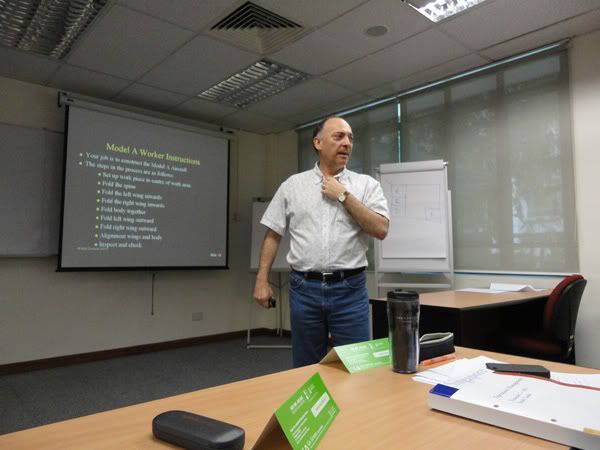
The lecturer shared many case studies and they are:
1) Canon - On how they become the top printer and camera developers and manufacturers. They actually set a 10 year plan to make it happen and how they develop the technical know-how from where they were previously.
2) RAM Chips - In the 80s, the RAM chip makers were leaders in the US. But they follow the wrong operational process. As a result, when the Japanese joined the market, the US chip makers were wiped out.
3) Story of Dell - On how Dell become successful in the PC Desktop market. They basically took over the PC Desktop market when it is already saturated by established players. Their advantage is on operations management. On how they do things more efficiently and differently.
4) Qantas Airline - It is quite a paradox really. During the early-2000, they were a leader in the airline industry. The cost cutting measures implemented by them actually had a severely adverse effect on their profitability. The service standards dip as a result of the cost cutting measures. This pave the way for Emirates to dominate the Australian market.
5) Jacobs Creek story - On how it change the wine industry and standards from the 80s. It started by changing customer perceptions as Jacobs Creek make wine highly accessible and consumed on a daily basis like the European wines.
And many more...
We have to do a case study preparation before coming for the first intensive. And the first case study is on Benihana of Tokyo. We had a group discussion on this case by the end of the intensive. It's quite impressive on how Benihana ventured into the US market and managed to capture a sizable market. Even though many other restaurants introduced Teppanyaki, but what Benihana has are the professional chefs. Basically it's the fun factor that they have.
During class, we have some hands-on to evaluate the performance of manufacturing paper aeroplanes. There were 5 of us in the group and we began recording the time through the steps. Here we have below making the planes.
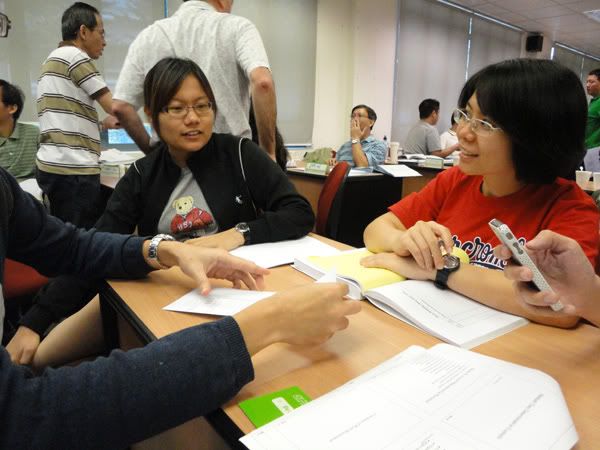
The second intensive is mainly on lean manufacturing and the toyota production system. Organisations have been changing over the last century. At the beginning of the 20th century it was on empowering the individual, follow by organisational structures and now at the start of the 21st century, concepts of lean organisations are affecting how businesses work. Organisations that fail to transform themselves will cease to exist 10 years from now.
We played an interesting game call the Beer Game in class. It is actually to demonstrate the BullWhip Effect on Supply Chain Management. Below we have the lecturer explaining to us on the rules of the game.
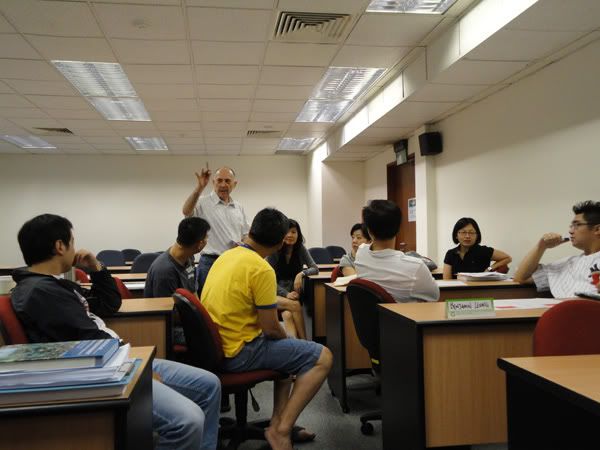
Here we are planning on the Inbound, Current Stock and Outbound inventory; carefully pondering over the inventory to order and supply.
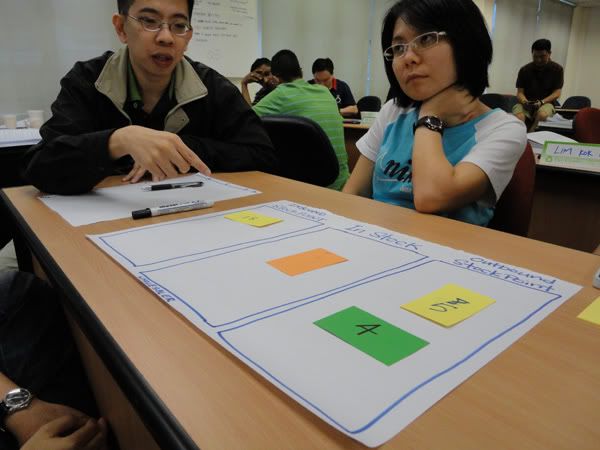
And our lecturer Max concluding and sharing the results with the whole class. It's amazing to see the BullWhip Effect being demonstrated out directly from our planning and discussion.
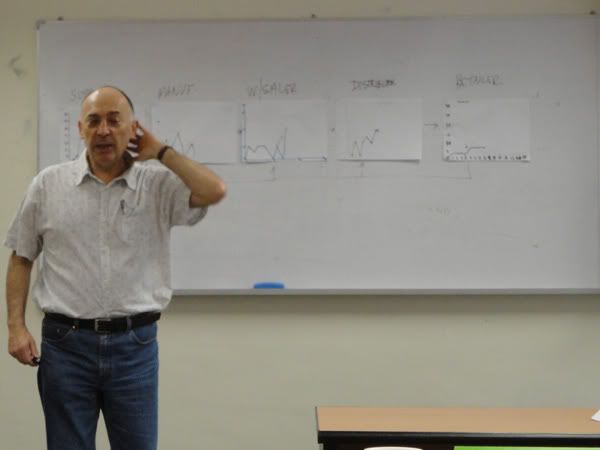
30% of subject grading goes into group assignment and there are 6 members in our group. For our group, we have chosen to study a polyclinic process.
Individual assignment-wise, we find assignment 1 to be alright. But assignment 2 is really the toughest.
Here we are taking a group photo outside the polyclinic. Once we are in, it is about playing 'hide and seek' with the staffs. Toa Payoh is one of the newer polyclinics as it has just been recently renovated. We are quite surprised to see a few 'Kaizen' rooms in there.
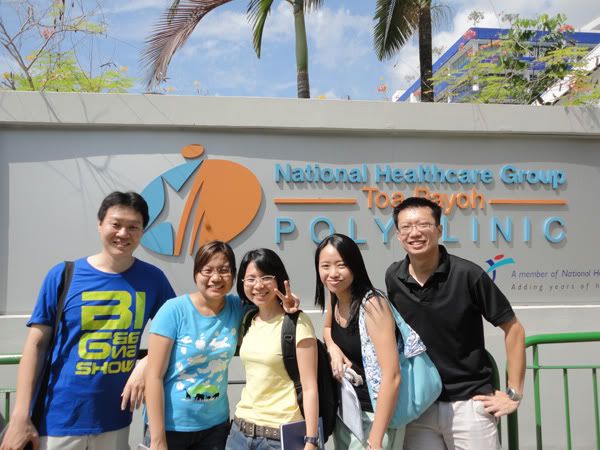
After the polyclinic studies, we are back to the 4-12 room for our group discussion. Here we have Kenny and Adelene taking photo of the white board.
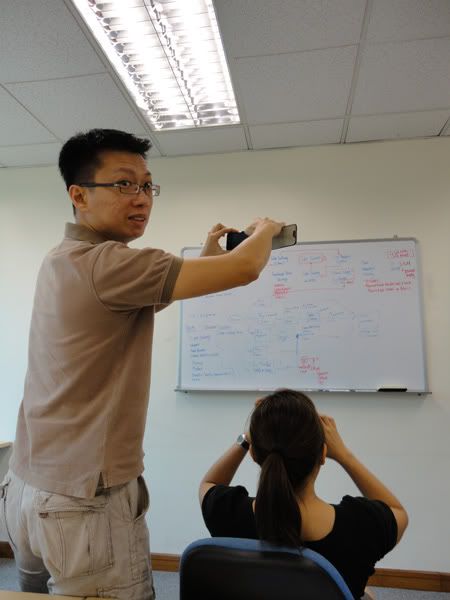
After our final group discussion on the 13th August, we arranged for a visit to the Teppanyaki restaurant at Hill Top Japanese Restaurant (Jurong Bird Park). The appointment was made at 7pm. We had been discussing about visiting the restaurant since the first intensive as one of the case study we had worked on is on Teppanyaki. I'm quite surprise there is a waiting area in the restaurant (quite similar to Benihana).
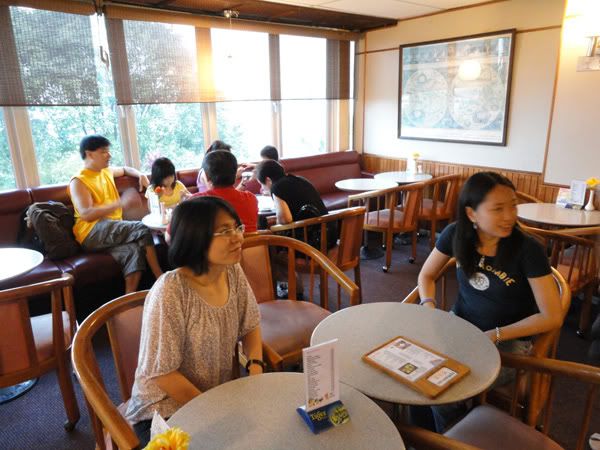
And we were led to the Teppanyaki room where the chef welcomed us.
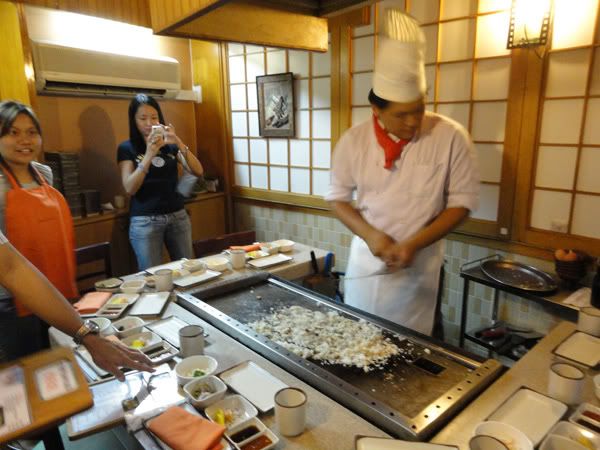
The Teppanyaki experience is not exactly that of Benihana but the food is fabulous. One of the best Teppanyaki I had so far.
Coincidentally, Alisha's birthday is today and we have prepared a cake + candles + birthday songs. Here we have Adelene cutting the cake into 6 pieces.
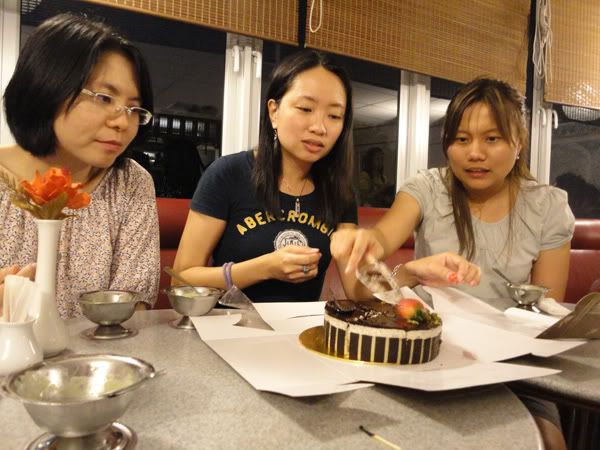
Our group photo:
William, Kenny, me, Hong Hui, Alisha and Adelene.
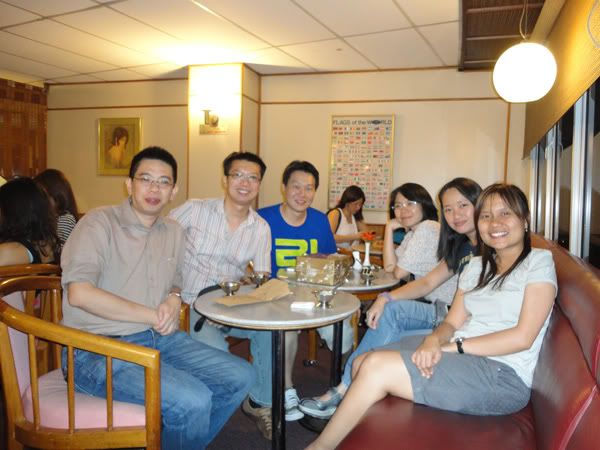
Next, William suggested we can visit the NUS Society Guild House. He is a member there. We move on there and here we are.
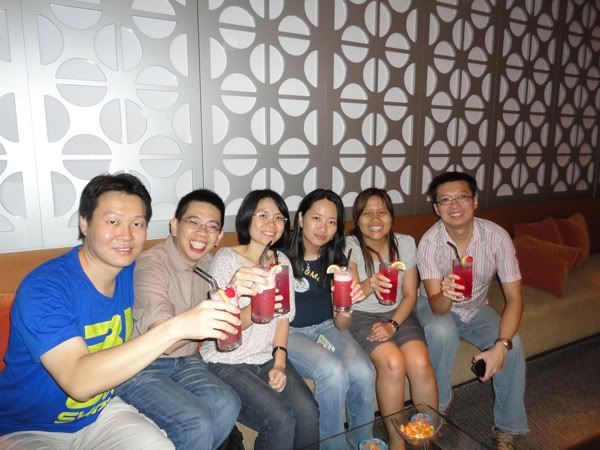
Everyone celebrating the end of the Operations Management subject. It has been a very intensive 1.5 months. The many evenings and weekends we have spent together, having fun, coming up with jokes, planning on activities and of course, working on the tough assignments together brings back many memories.
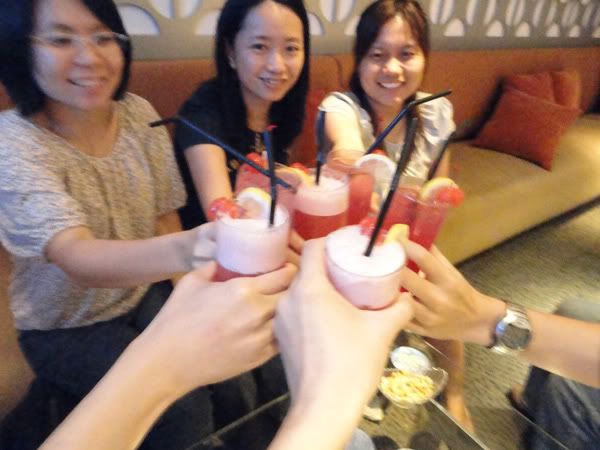
No comments:
Post a Comment
Note: Only a member of this blog may post a comment.